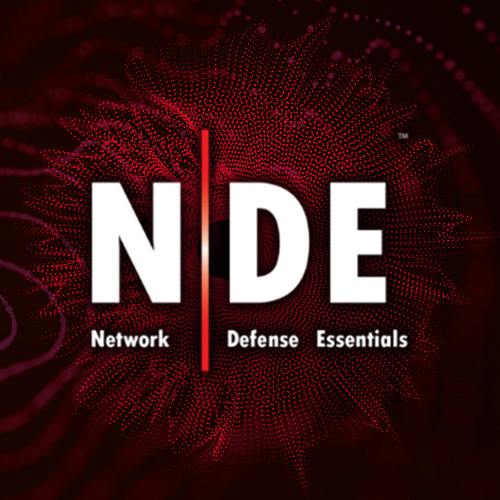Modul 01
Information Security Fundamentals
Information Security Fundamentals
Ethical Hacking Fundamentals
Information Security Threats and Vulnerability Assessment
Password Cracking Techniques and Countermeasures
Social Engineering Techniques and Countermeasures
Network Level Attacks and Countermeasures
Web Application Attacks and Countermeasures
Wireless Attacks and Countermeasures
Mobile Attacks and Countermeasures
IoT and OT Attacks and Countermeasures
Cloud Computing Threats and Countermeasures
Penetration Testing Fundamentals
EHE – Ethical Hacking Essentials
What is EHE?
Ethical Hacking Essentials is an introductory cybersecurity course that covers ethical hacking and penetration testing fundamentals and prepares learners for a career in cybersecurity. This ethical hacking course will introduce learners to computer and network security concepts such as threats and vulnerabilities, password cracking, web application attacks, loT and OT attacks, cloud computing, pentesting fundamentals, and more. EC-Council’s ethical hacking essentials course provides hands-on practical experience to learners, thus giving them the skills necessary for a future in cybersecurity. Put your newly acquired abilities to the test with an exhilarating Capture the Flag (CTF) Exercise seamlessly integrated in our Capstone project. This CTF is seamlessly integrated by live virtual machines, genuine software, and real networks, all delivered within a secure and regulated sandbox environment. With these exclusive hands-on, human-versus-machine CTF challenges you will develop the hands-on proficiencies essential for success in your cyber professional role.
What will you learn?
Who Is It For?
Course Objectives
The EC-Council’s Ethical Hacking Essentials (EHE) course aims to provide foundational knowledge and practical skills in ethical hacking. Here are the key objectives of the course:
These objectives provide a comprehensive foundation in ethical hacking, preparing participants to understand and address security threats, perform vulnerability assessments, and implement protective measures to secure systems and networks.
Career Path Opportunities
Completing the Ethical Hacking Essentials (EHE) course from EC-Council can open up various career opportunities in the field of cybersecurity and IT. Here are some potential career paths:
These career paths leverage the foundational skills and knowledge gained from the EHE course, enabling individuals to pursue various roles in cybersecurity and information technology.
Exam Information
Exam Title: Ethical Hacking Essentials
Number of Questions: 75
Duration: 2 Hours
Exam Availability: ECC Exam Center
Test Format: Multiple choice
ComputerLand Romania vine in intampinarea specialistilor din domeniul securitatii informationale prin incheierea unui parteneriat cu EC-Council, furnizorul unora dintre cele mai apreciate programe de instruire in acest domeniu, si aduce in Romania o gama variata de cursuri si certificari.
iLearn Self-Paced este un program de invatare de la distanta, conceput pentru cei care nu pot participa la un curs live, pentru persoanele care au un program foarte ocupat si doresc sa invete in propriul ritm, prin studiu individual. Acest program de instruire cuprinzator ofera avantajele instruirii la clasa in ritmul propriu.
Lider mondial, EC Council ofera cursuri si certificari de securitate a informatiilor in toate disciplinele majore de securitate a informatiilor, inclusiv securitatea informatica, securitatea calculatoarelor, securitatea retelelor, securitatea aplicatiilor, testarea penetrarii retelelor informatice, criminalistica informatica, si detectarea intruziunilor.
EC-Council estimeaza o rata de succes de peste 90% la examen pentru specialistii IT care studiaza folosind aceste pachete de iLearn pe durata estimata si folosind ghidul de pregatire
Module de instruire on line conduse de instructori experimentati EC-Council
Informatii si Inscrieri Cursuri Ec-Council – Computerland România
Computerland Romania
Soseaua Fabrica de Glucoza 15, Bucuresti 020331

 NDE – Network Defense Essentials
NDE – Network Defense Essentials